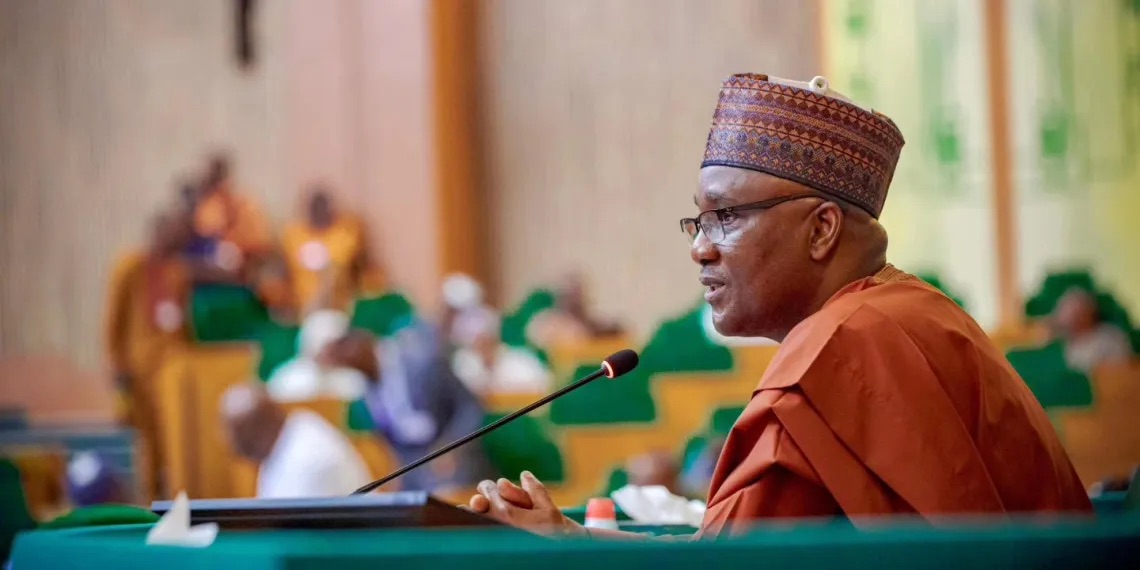From Ndubuisi Orji, Abuja
The House of Representatives has urged the Federal Government to suspend implementation of the Samoa Agreement signed recently, until all controversial clauses were clearly defined to make sure they do not violate any law in Nigeria.
It also mandated its Committees on National Planning and Economic Development, Justice, Treaties, Protocol and Agreement to interface with relevant government agencies to resolve all grey areas in the Agreement.
This followed the adoption of a motion by the Deputy Minority Leader, Aliyu Madaki and 88 others, at plenary, calling attention to some allegedly offensive clauses in the agreement.
The House passed the resolution following the adoption of a motion of urgent public importance sponsored by Sani Madaki, the minority whip, and 87 other lawmakers.
The agreement recently sparked controversy following reports that some lesbian, gay, bisexual, and transgender (LGBT) provisions found their way into the pact.
Madaki, in his lead debate, said there were concerns that some clauses in the agreement purportedly promotes LGBTQ rights, which is against extant laws in the country.
The lawmaker said “on June 28, 2024, the Federal Government signed what is known as the Samoa Agreement with the European Union (EU) to boost food security and inclusive economic development, among other vital areas.
“The agreement allegedly has some clauses that compel underdeveloped and developing nations to support the Lesbian, Gay, Bisexual, and Transgender (LGBT) community as a condition for getting financial and other support from advanced societies.”
Madaki also expressed concerns “that Article 97 of the Agreement, which states that, “no treaty, convention, agreement or arrangement of any kind between one or more member states of European and one or more OACPS members shall impede the implementation of this Agreement” is supremacy Clause and thus violates Nigeria’s sovereignty;
“Some other Articles, especially Article 2. 5, 29. 5, 36. 2, and 88 in the Samoa Agreement stated that was signed by the Federal Government may be inimical to the interest of Nigeria as a country and the values of our people as a whole more so it does not contain a Reservation clause.
“Article 2.5 states that parties shall systematically promote a gender perspective and ensure that gender equality is mainstreamed across all countries.
“The phrase gender equality as reported is Trojan horse for deceptively bringing in all sort of immorality to our country, as gender no longer mean two sexes male and female as traditionally understood, it now includes homosexsualism, lesbianism, transgenderism and animalism;
“The signing of such an agreement with the aforementioned clauses, if true violates our sovereignty and is a clear contravention of section 124 of the 1999 constitution as amended. The Federal Government may have signed the agreement without exhaustive consultations and consideration for possible long-term consequences.”
Nigeria’s Same-Sex Marriage Prohibition Act (SSMPA) passed in 2014 prohibits LGBT rights and criminalises marriage between people of the same sex.
Nigeria’s legal position on same-sex marriage was what fuelled the uproar that followed its signing of the Samoa Agreement.
According to the European Council, the Samoa Agreement is the overarching framework for European Union (EU) relations with African, Caribbean, and Pacific countries.
The agreement serves as a new legal framework for EU relations with 79 countries, including African, Caribbean, and Pacific countries.
The agreement covers six priority areas, which are democracy and human rights; sustainable economic growth and development; climate change; human and social development; peace and security; and migration and mobility.
The agreement was officially signed on November 15, 2023, by the EU and its member states and Organisation of African, Caribbean, and Pacific States (OACPS) members in Samoa, a country in Oceania.
Nigeria did not sign the agreement initially, as the federal government said it was still studying the pact.
The new agreement replaces the Cotonou Agreement, which was signed in 2000.
The signing of the agreement has been dogged with claims that it seeks to compel developing nations to support LGBTQ agitations.
Mohammed Idris, the minister of information and national orientation, clarified that the Federal Government ensured that the agreement did not contravene the 1999 Constitution (as amended) and other extant laws.
It has also explained that the agreement is strictly for the economic development of the country — as against claims that it contains provisions for same-sex marriage.

